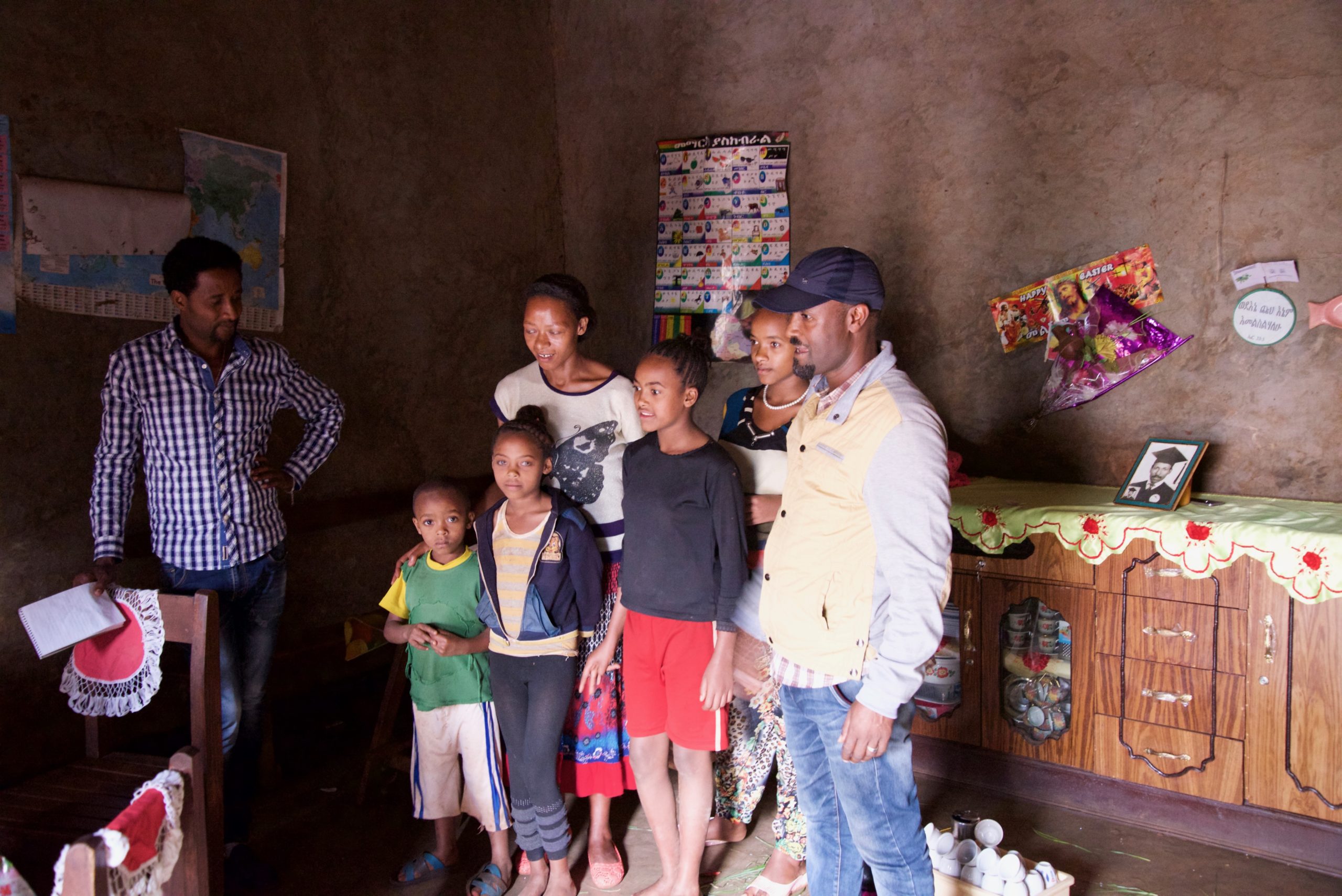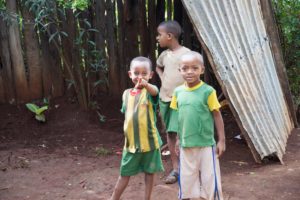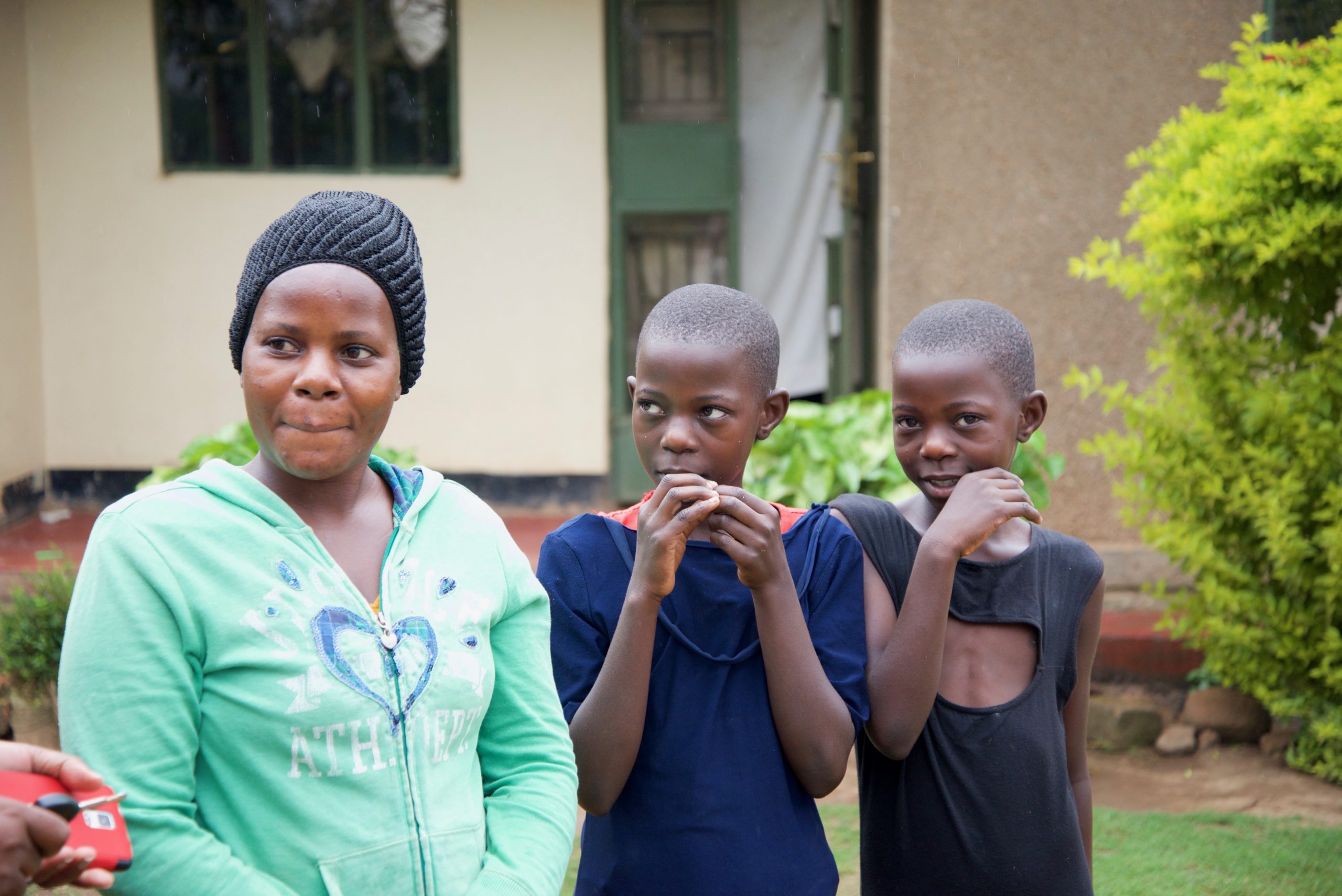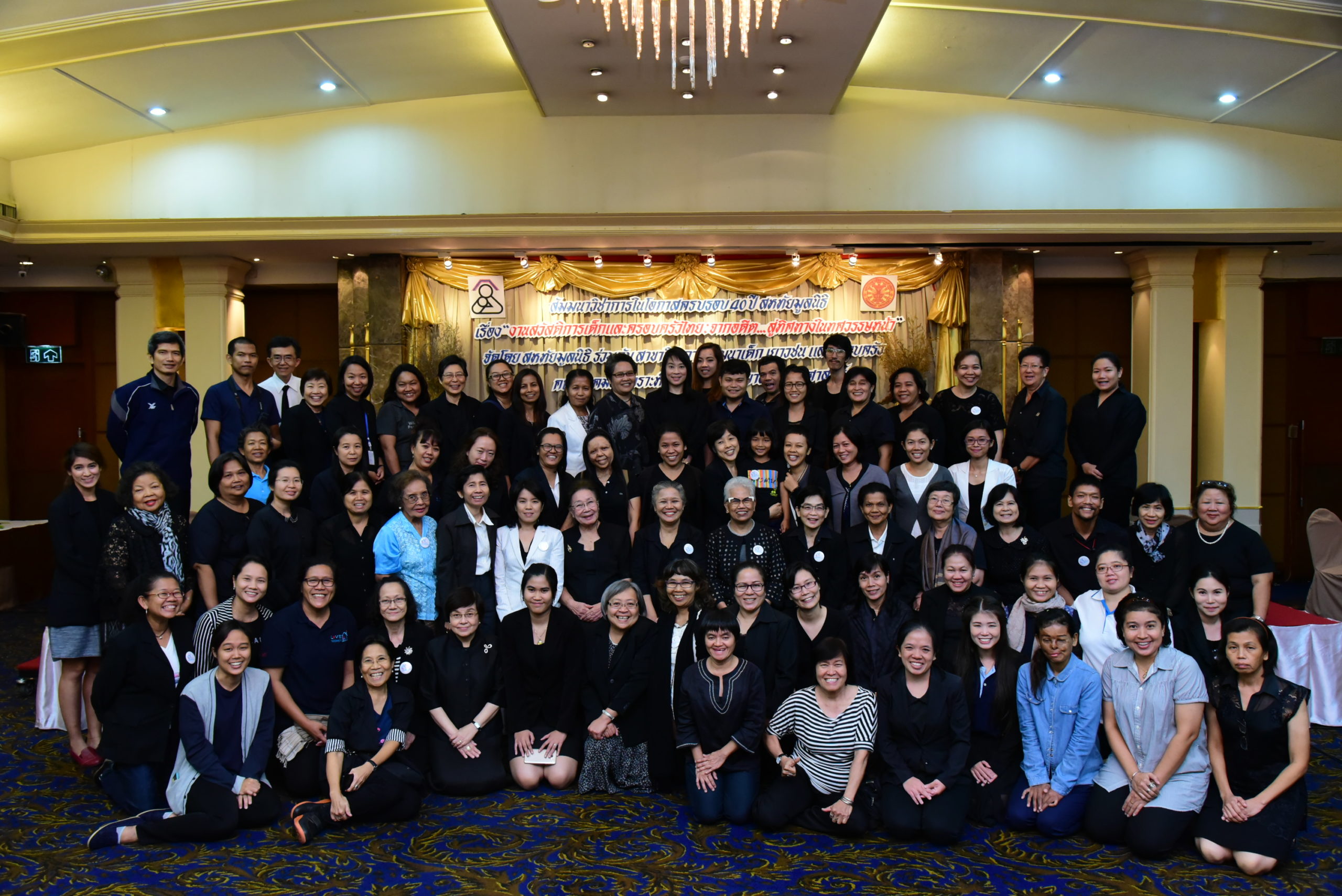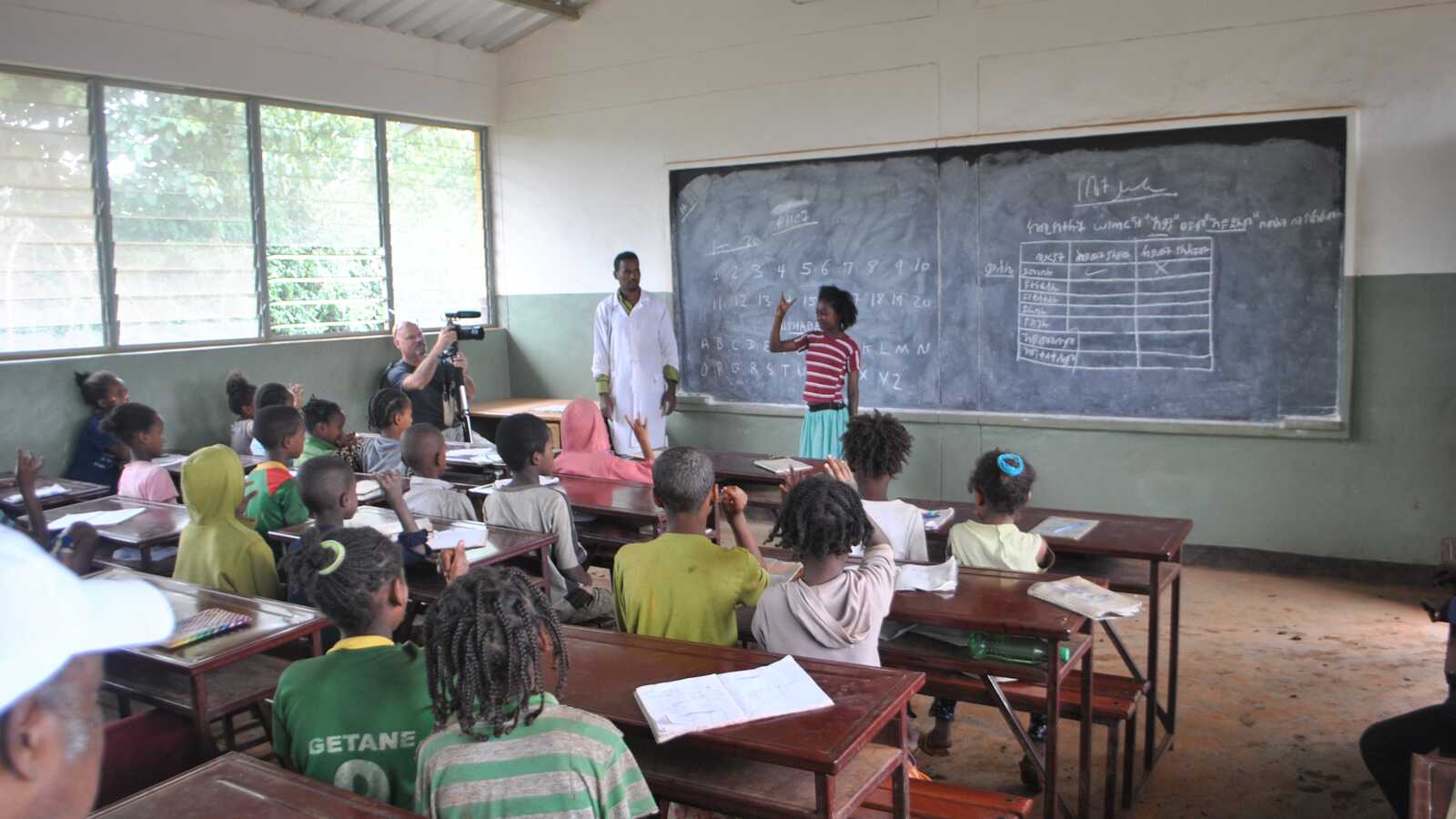When her husband died of AIDS at a young age, Sebele felt hopeless and unsure about how she would support her five children. But with a small business grant and training from our partner in Ethiopia, she has kept her family together — and has become “a person again.”
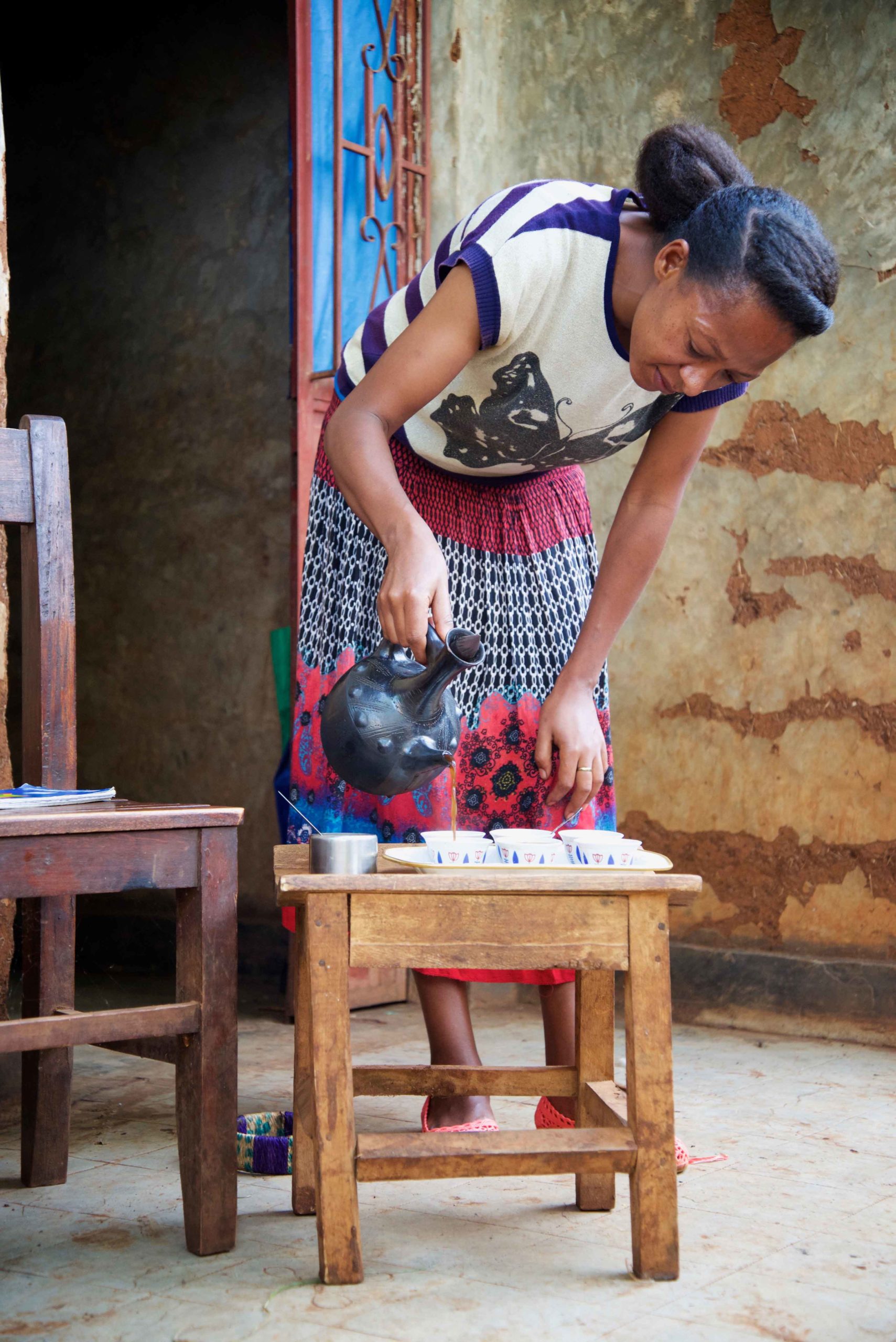
Sometimes, people say bad things to Sebele’s children. They taunt them because their father died of AIDS. They avoid them because their mother still carries the virus. They push them to the point of tears.
“They come home and they cry sometimes,” says Sebele*, her eyes cast downward, hands neatly folded in her lap, as she sits on her porch beside four of her five children. “They find their father’s picture and they cry.”
Sebele and her family live in Shinshicho, Ethiopia — one of the southern region’s impoverished woredas, or districts, where Holt has for nearly a decade worked alongside local partners to strengthen struggling families, in particular families headed by women. Here, the stigma against HIV remains so strong that the local hospital — a hospital Holt worked alongside the community to help build — has a separate wing to help HIV patients keep their health status private. When Sebele’s husband died, her neighbors shunned her. Friends and relatives became distant. And even though her children are not carriers of the disease themselves, they too experienced discrimination at school and in their community.
“The only thing I wanted was not to live,” she says.
But life was not always so bleak for Sebele and her family. Before her husband died, he earned a good income working in the local government. Her children attended private school. They ate well. They lived well. And they were respected and embraced in their community.
“Their life was normal,” Sebele says of her children, speaking in Amharic to our translator. “They used to get good support. They learned very well. But the only source of income was from their father. So after he died, that made it even harder.”
With her husband gone, her own health in jeopardy and no means to support her children, Sebele could have given into despair and sent her children to live with relatives. But before he died, Sebele made a promise to her husband.
“My husband made me promise to raise them together,” she says. “I couldn’t give them to relatives or extended family because I wanted them to grow together with me.” She immediately began seeking ways to meet her children’s physical and psychological needs. “I was very defensive toward them,” she says.
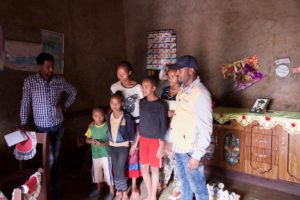
With no one to care for her two youngest children during the day, Sebele could not leave her home to work as a daily laborer. Uncertain what to do, it was Sebele’s then 15-year-old son who came up with a plan for them to get back on their feet again — suggesting they open a small shop in front of their home, which sits in a good location to attract customers at the center of town.
Resolute about keeping her family together, Sebele approached the pastor of her church, who gave Sebele 1,000 birr of the church’s money — about $45.
Although a significant investment toward her goal — and a significant amount of money in Shinshicho — this gift from the church was still not enough to start her small business. Already humbled by this dramatic change in her life, Sebele hesitated to ask for more. “I was so shy to ask the pastor to give me more money,” says Sebele, whose home gives little hints of her former social standing in the community. On top of a nice wooden bureau packed with dishes sits a photograph of her late husband in university cap and gown.
At this point, our local partner OVC became a part of Sebele’s story as they have for so many Shinshicho families — families whose photos plaster the walls of OVC’s small two-room office space. Founded in 2008 by a group of volunteers who worked to raise funds for children in need, OVC is now staffed by a professional team who are local residents of Shinshicho. Following Holt’s family strengthening model, OVC strives to empower struggling families like Sebele’s with tools and resources to become stronger, more stable and ultimately, self-reliant. Through OVC, children are enrolled in Holt’s educational sponsorship program and families participate in a savings and loan program. With gifts of hope and other donations from Holt supporters, families in the program receive livestock or funds to start a small business as well as trainings in hygiene and sanitation, business and farming skills, and they learn how to grow their assets and save long-term.
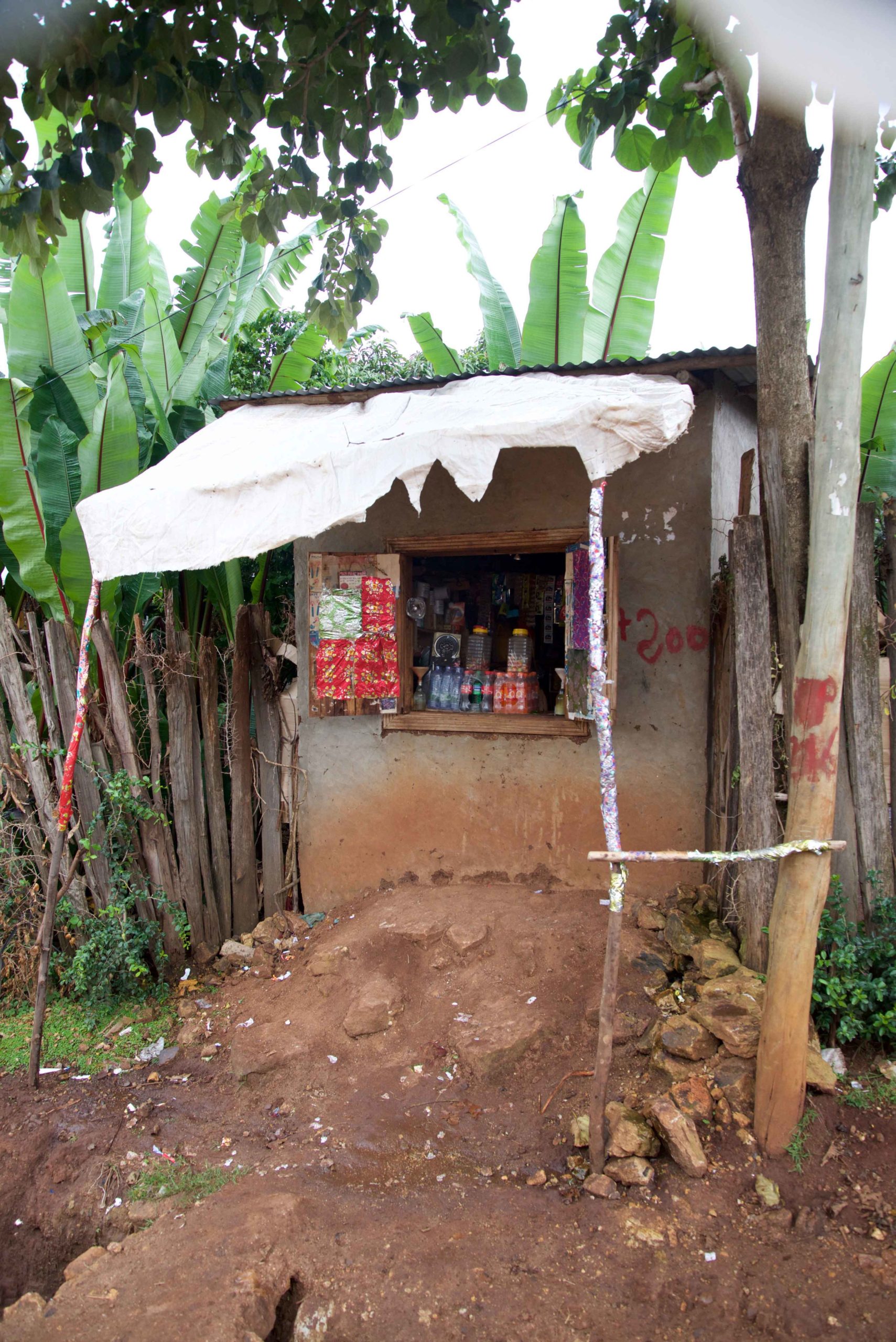
Identifying Sebele as a great candidate for the program, OVC staff empowered her with the funds she needed to start her business — a grant of 2,300 birr, or about $100. “They gave me training for two days and they gave me the seed money,” Sebele tells us. With this funding, she purchased some soaps and candies and soft drinks to start her shop.
“I was hopeless and I didn’t even want to live in my situation,” Sebele shares. “Then the social workers and coordinators visited me and they encouraged me with everything and that’s why I started dreaming and reviving again.”
Sebele continues to receive regular follow-up visits from OVC staff, who check in on her progress as well as her wellbeing and the wellbeing of her children. They check on how the children are fairing in school — which both she and her social workers agree is excellently — and they work to problem-solve challenges she faces in her business or with growing the taro and enset plants they provided to bolster her family’s nutrition.
Sebele is also grateful for the support of her children — her teenage son and daughter, who say they want to support their mother in every way, and her little ones, including a daughter who made everyone giggle when she said she “wants to buy her a television” and a 7-year-old son who “wants to take her to Addis” to see the capital of Ethiopia.
“I brought the idea because I knew it would change us,” her oldest son, now 16, says of his suggestion to start the shop. “I support her with everything I can.”
As for her health, Sebele’s HIV is well managed by regular and consistent use of anti-retroviral (ARV) drugs, which are covered by the government. But with the new hospital in Shinshicho, she now has much easier access to her medication. Until the Shinshicho hospital opened, HIV-positive patients would have to travel to Durame to receive their ARVs — a 30-minute journey by car, and a huge obstacle to maintaining their health.
Here, Sebele has also become part of an HIV support group organized by the staff of the clinic.
“Basically, it’s a kind of community built at the hospital,” Sebele says of the group. “So we share experiences, we tell stories, we take trainings together. Everyone shares how they have been preventing the virus from transmitting from mother to child or father to child, and how they are keeping their household together. Now I have friends. And the nurses also like me so much and they want everyone to be open like me.”
While many of her fellow group members prefer to keep their status private — taking advantage of the separate entrance to the isolated HIV wing at the hospital — Sebele is very open and willing to share about her experience. While visiting the hospital on a different afternoon, we see her across the lawn, entering the clinic. Spotting us, she turns and waves across the big open front entrance of the hospital, a confident smile spread across her face.
For the first time in a long time, she has hope for the future.
“Now because of Holt and OVC’s support, my children are getting all the support that is needed for their education… Now I am reviving and rising again,” she says. “Previously, I was so hopeless. But because of their support, because of their training, because of their counseling, I became a person again.”
Robin Munro | Managing Editor
* name changed to protect her identity
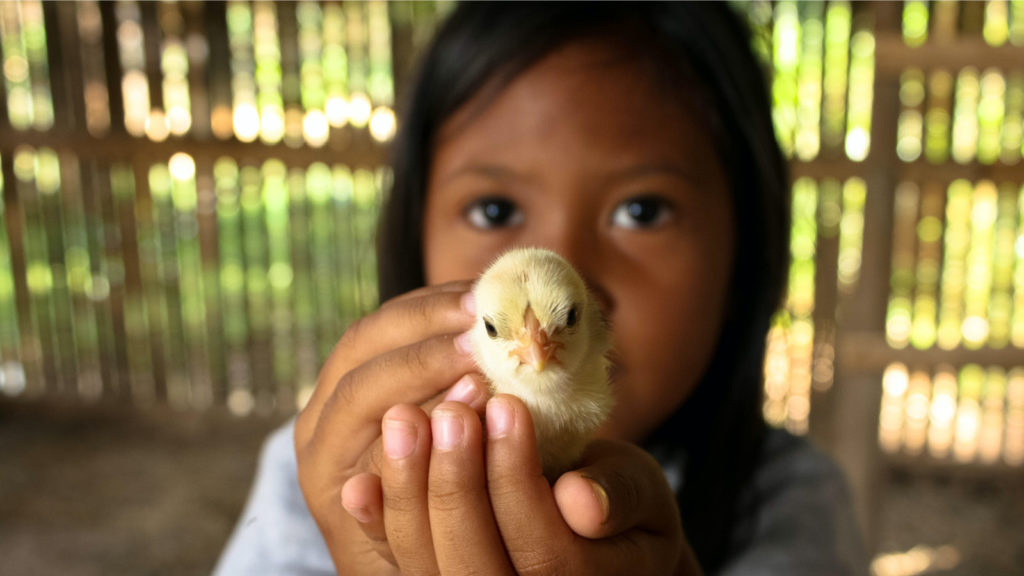
Give a Gift of Hope
Give a lifesaving or life-changing tangible gift to a child or family in need. And this holiday season, give in honor of a loved one and they’ll receive a free card!
